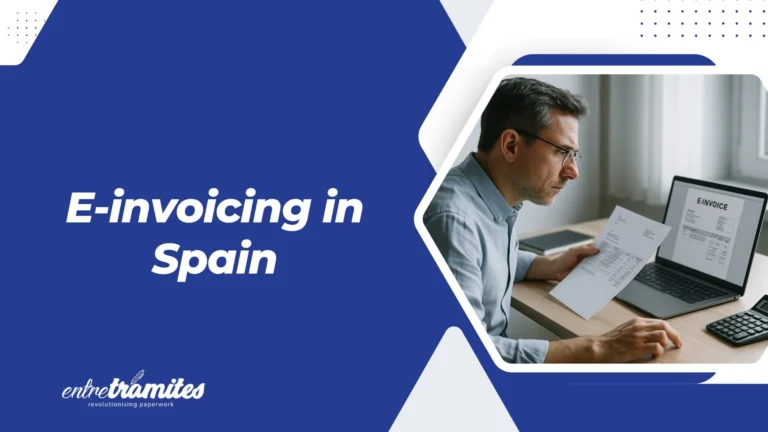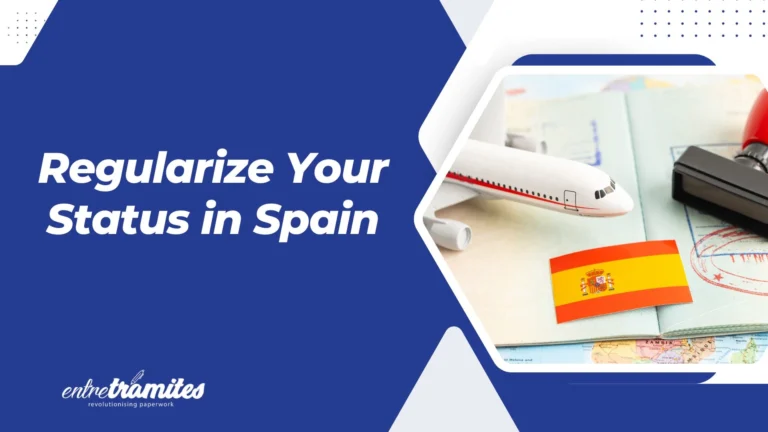E-invoicing in Spain has become a cornerstone for driving digitalization and combating late payments. With the entry into force of the “Crea y Crece” Law (Law for the Creation and Growth of Businesses), the regulatory framework for companies and freelancers is transforming, demanding the use of digital tools for issuing and receiving invoices. This regulation not only enhances traceability and payment control but also reduces costs, streamlines processes, and contributes to a more transparent and efficient business ecosystem.
Below, we’ll explain what the e-invoicing in Spain law entails, how it relates to the “Crea y Crece” Law, who is obliged to comply, what deadlines you need to consider, and what steps you can take to adapt correctly.
What is the “Crea y Crece” Law?
The “Crea y Crece” Law, approved in September 2022, is a measure by the Spanish Government aimed at facilitating company creation, improving access to financing, and reducing late payment levels in commercial operations. Its official name is Law 18/2022 in Spanish Ley 18/2022, of September 28, on the creation and growth of companies.
This law has four main objectives:
- Simplify company formation, allowing the creation of a Limited Liability Company (SRL) with a share capital of just 1 euro.
- Boost digitalization, especially through the mandatory implementation of e-invoicing in Spain.
- Combat late payments, promoting responsible payment term practices.
- Improve the regulatory environment, reducing administrative hurdles and facilitating access to alternative financing.
All of this is framed within the Recovery, Transformation, and Resilience Plan, supported by European Next Generation EU funds.
What Does the E-invoicing in Spain Law Imply?
The e-invoicing in Spain law is one of the most relevant measures of the “Crea y Crece” Law. It establishes the mandatory use of electronic invoices for all commercial operations between businesses and freelancers (B2B), with the goal of ensuring greater payment control and reducing late payments.
To learn more practical details on how to issue electronic invoices and comply with current regulations, you can check out this comprehensive guide on electronic invoicing in Spain.
This obligation already existed since 2015 for relations with Public Administrations thanks to Law 25/2013. However, the “Crea y Crece” Law extends this obligation to the private sector, with an implementation schedule based on billing volume.
When Does Mandatory E-invoicing in Spain Come into Force?
Although the “Crea y Crece” Law was approved in 2022, the obligation to issue electronic invoices depends on the approval of the specific regulation detailing the technical requirements. This regulation was approved in April 2024 and sets the following deadlines:
- Companies with turnover exceeding 8 million euros
- Adaptation period: 1 year from the publication of the regulation (April 2025).
- Deadline for implementing e-invoicing in Spain: April 2025.
- Companies and freelancers with turnover below 8 million euros
- Adaptation period: 2 years from the publication of the regulation.
- Deadline for implementing e-invoicing in Spain: April 2026.
During this transitional period, it’s crucial for businesses and professionals to start adapting their invoicing systems, choosing certified digital solutions, and training their teams in the new regulatory environment.
Key Benefits of Electronic Invoicing
Beyond mere obligation, the e-invoicing in Spain law brings significant benefits for any company or freelancer:
- Time and Cost Savings: Eliminates expenses for printing, postal delivery, and physical archiving.
- Error Reduction: Automated systems minimize human errors and duplications.
- Greater Traceability: Every electronic invoice is registered, with complete tracking from its issuance to collection.
- Regulatory Compliance: Facilitates tax declarations and compliance with tax obligations before the Tax Agency.
- Improved Liquidity: By reducing late payments, it streamlines companies’ financial planning.
What Must an Electronic Invoice Contain?
To comply with current legislation, an electronic invoice must:
- Include the same data as a paper invoice: issuer, recipient, date, concept, amount, applicable taxes, etc.
- Have an advanced electronic signature that guarantees authenticity and integrity.
- Be in a structured and readable format, such as Facturae, UBL, or CII, compatible with the Administration’s systems and other management platforms.
- Ensure secure storage for 4 years, accessible for tax inspections.
How to Choose an Electronic Invoicing System
When implementing e-invoicing in Spain, it’s important to choose a solution that fits your business needs. Here are some recommendations:
- Legal Compliance: The software must comply with the “Crea y Crece” Law regulation and be approved by the Tax Agency.
- Integration: It should integrate with your company’s existing accounting and ERP systems.
- Usability: An intuitive interface facilitates its adoption by the team.
- Updates and Support: The provider must offer maintenance and stay up-to-date with regulatory changes.
There are subsidized solutions available through the Kit Digital program, which allow freelancers and SMEs to access digital tools with aid of up to €12,000.
The E-invoicing in Spain Law and the Fight Against Late Payments
One of the central pillars of the “Crea y Crece” Law is the reduction of late payments, a problem that severely affects many SMEs. By making e-invoicing in Spain mandatory, precise and real-time information is obtained on:
- Payment terms.
- Volume of unpaid invoices.
- Companies that fail to meet legal deadlines.
This transparency will also be reflected in the future in public compliance indexes, allowing suppliers and customers to make informed decisions before closing commercial agreements.
Frequently Asked Questions (FAQs)
- When do I have to start using e-invoicing if I’m a freelancer in Spain? If your annual turnover is less than 8 million euros, you must start issuing electronic invoices from April 2026. However, it’s highly recommended to begin the adaptation process as soon as possible.
- What happens if I don’t comply with the e-invoicing obligation in Spain? Non-implementation can lead to economic sanctions, prevent the collection of invoices, or exclude you from public tenders. Furthermore, you risk incurring tax irregularities.
- Can I continue to use PDFs as electronic invoices? No. Electronic invoices must be in structured formats and meet technical requirements, including an electronic signature. A simple PDF is not sufficient for e-invoicing in Spain.
In summary, the e-invoicing in Spain law represents a necessary shift towards more efficient, secure, and transparent business management. Thanks to the “Crea y Crece” Law, this step is now mandatory and backed by support measures to facilitate its implementation. The sooner you adopt this transformation, the more advantages you’ll gain in terms of competitiveness, liquidity, and legal compliance.
Need personalized assistance? At Entre Trámites, we offer management and tax advisory services for freelancers and SMEs. You can also contact us directly through this contact Form for us to call you, or if you prefer, you can schedule a free consultation or write to us on WhatsApp. We’re here to make the process easier for you!. We’re here to make the process easier for you.





